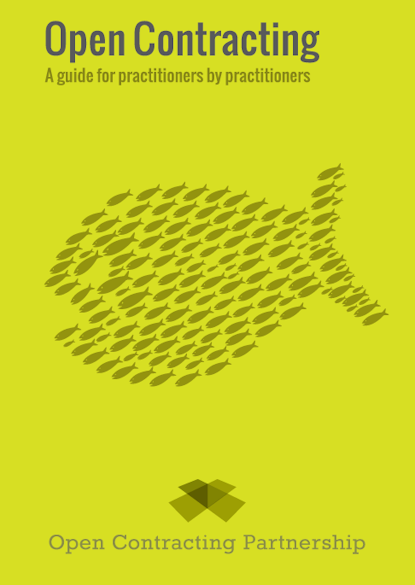Book Sprint: Writing an Open Contracting Guide in Five Days

Publishing a book in 5 days? Really? Can we make it happen?
We set out to answer these questions by embarking on an Open Contracting Book Sprint – a facilitated process that guides participants through the production of a book in less than a week.
The World Bank Institute hosted a Book Sprint that brought together 17 experts from around the world to co-create an open contracting guide for practitioners by practitioners.
The process allowed experts and practitioners from countries like Brazil to come together and produce a guide for all of those seeking to advance open contracting.
The book, which features the collective inputs from a diverse set of experts, highlights the benefits of enhanced disclosure and participation around contracting processes. It also aims to guide and inspire others in their own open contracting activities, and to support the emerging global community of practitioners around open contracting.
The book contains four sections: “Introduction and Framing”, “How to Do It”, “Reflections, Risks, Sustainability and Lessons” and a conclusion that includes a glossary of terms and a list of resources.
This guide will remain a living document, and will be developed over time with the objective of supporting as many practitioners as possible.
Producing a Book in 5 Days
 What was the process to produce a book in 5 days?Imagine days of intensive group discussions, writing, re-writing, writing, negotiating with others on concepts, re-writing once more and editing.
What was the process to produce a book in 5 days?Imagine days of intensive group discussions, writing, re-writing, writing, negotiating with others on concepts, re-writing once more and editing.
For a Book Sprint to be successful it requires strong facilitation skills and creativity to manage interpersonal dynamics, keeping a diverse group of participants on task supporting them in the challenging task of writing an entire book in five days. The facilitator guided participants from zero to published book, using the content and structure as decided by the participants. Full development of the content occurred over the five days of the Sprint.
The richness of this process was not limited to the product in itself, but the actual conversations that took place around the production of the book. Real value came from the sharing and capturing of knowledge that many times remains tacit and hardly gets codified, as well as the community building component that created a sense of ownership and belonging.
Part of the process involved developing complex concepts and simplifying them. Throughout the Book Sprint, a graphic designer worked with the different participants on visualizing their concepts. The Book Sprint was also an interesting process that challenged our traditional conceptions about “authoring”, “peer-review” “a voice of the book” and “publishing” with a big splash of collaboration.
You can read more from behind the scenes of the Book Sprint in the following blog posts shared in the OC Community of Practice:
· Sprinting to publish a book on Open Contracting
· World Bank Book Sprint Underway
· In the making – collaborative book writing
· Everyday We Re-Write the Book
This Book Sprint process contributed to strengthening our community of open contracting practitioners. During the Sprint, practitioners were not just sharing their knowledge and capturing it in chapters for the book. More interestingly, new concepts and ideas were generated by practitioners working together. The Sprint became a unique space for the co-creation of new ideas and approaches based on practical experience and lessons learned.
The process was a practical lesson in constructive engagement, and a great way to learn about what other practitioners are currently doing in open contracting. It also served as an opportunity to establish what has been the enabling environments in which open contracting is currently taking place and to identify ways to create similar environments elsewhere.
Overall the Book Sprint process also helped build consensus around major elements of open contracting among a diverse group of practitioners representing civil society, and public and private sectors.
The resulting book was published under creative commons license, and it can be viewed here. As mentioned, this guide is a living document and so the highly collaborative process will continue after this initial publication.
We invite you to share your feedback about the book and contribute to the knowledge base on open contracting related tools and resources. To share your comments or add to the knowledge base, you can email partnership@open-contracting.com or post a comment directly below.
Want to know more? View the recording of recent session featuring presentations on CSOs working in open contracting and the book sprint.
